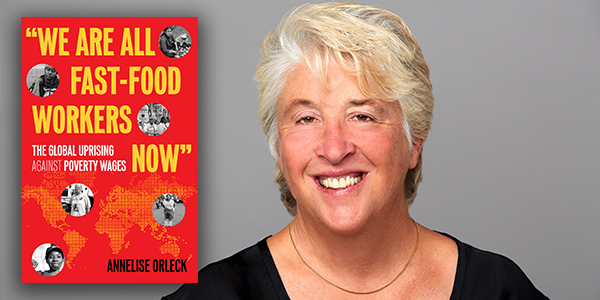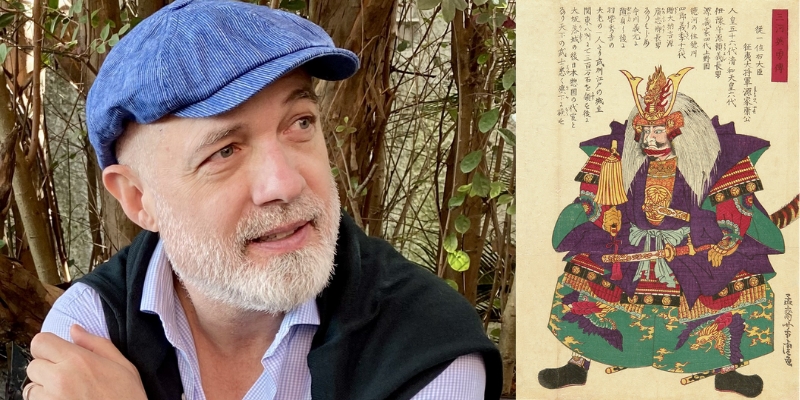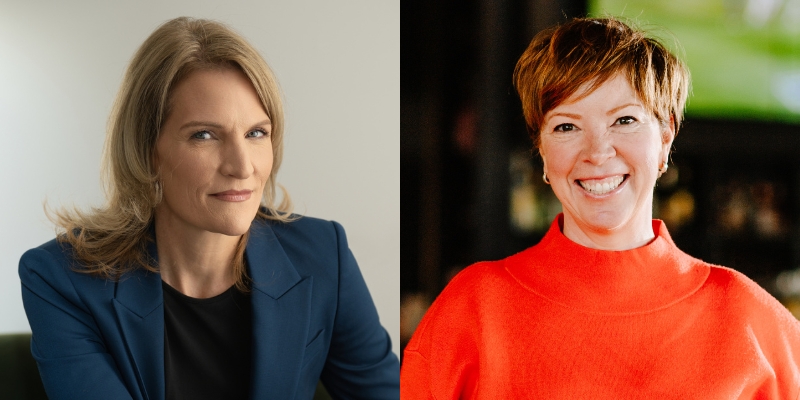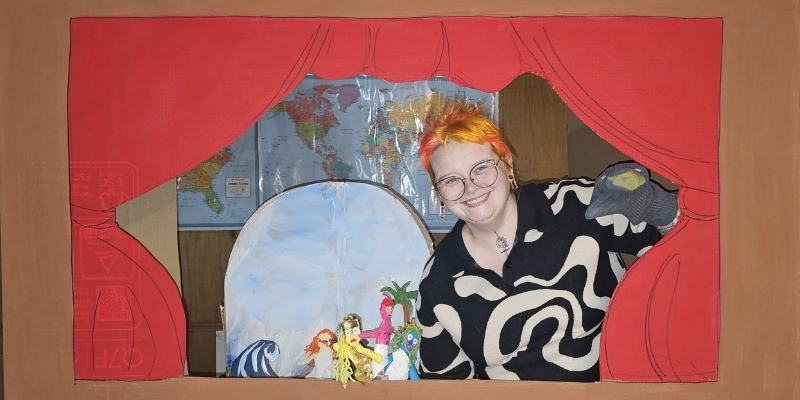
Over the past five years, Seattle has seen a tremendous expansion of worker protections, driven largely by the organizing of low wage workers themselves. According to Annelise Orleck, a labor historian at Dartmouth College, this is just one part of what has become a worldwide movement, and the defining labor struggle of the 21st century.
In her new book We Are All Fast Food Workers Now, she argues that this movement can only be understood, and can only flourish, when placed in a truly international context. Annelise will be discussing her book at an upcoming Town Hall event on Monday, April 23, but in the meantime we arranged a conversation between her and Town Hall correspondent Alex Gallo-Brown. Alex is a writer and former labor organizer in Seattle who currently works on the outreach team of the Fair Work Center where he helps train and advocate for workers rights.
They spoke about the new class of workers called “the precariat” and the place for joy in the labor movement.
Get tickets for Annelise’s talk on 4/23 here.
Alex Gallo-Brown: First of all, thank you for writing this book. I thought it was really compelling and important. One of the most striking things about the book was that so much of the stories are told by the workers themselves. You really focused on the workers and their voices from Tampa, Florida to the Philippines, to Cambodia, Bangladesh. Why was it important for you to let the workers speak for themselves?
Annelise Orleck: Well, that’s something that’s been a hallmark of my career really from my first book, Common Sense and a Little Fire, which talked about garment union organizers in the early part of the 20th century. It really was important to me to get as much material as I could in workers’ voices and poor people’s voices. My third book, Storming Caesar’s Palace, is about a group of welfare mom activists in Las Vegas who opened this incredibly effective anti-poverty organization in their own community. And there too, I really tried not to speak through them, but to let them speak for themselves. So this was more challenging in a sense, obviously because it’s global and because there are so many voices, but I felt like the hope, the resistance, the resilience, the creativity, the humor, the enjoyment of protests, all of that would come through so much better in their words than if I tried to narrate it from a distance.
AGB: Absolutely. And I think that really does come through, the global aspect, especially. You open with this powerful vignette about McDonald’s workers who’ve come to a conference in Brazil and they lift their sleeves up and they all have the same identical fire burn scars on their arms, but they’re from different places. One’s from Tampa, one’s from Tokyo, and one’s from Manila. When we’re talking about economic justice, why is it so important to focus on the global or to emphasize the global?
AO: In the last 30, 40 years, the economy has become global and we have the rise of these transnational corporations. There are probably about two dozen of which have more power than most national governments, most countries. And so it’s really important to talk about the global because we have a global trade regime through the World Trade Organization and their courts, and we have a global economy and therefore workers have recognized that they need to organize globally. So that conference that you talked about in Brazil in the summer of 2015 brought together fast food workers from around the world, because Brazilian fast food workers convinced the human rights committee of the Brazilian Federal Senate that McDonald’s, which was the second largest employer in Brazil and also the second largest private employer in the world, was driving down wages and eroding safety regulations and overtime laws around the world, not just in Brazil.
And so the Brazil Senate invited workers from around the world to testify about their conditions and also what they saw as the effect of McDonald’s on their larger economies. So I think being global is really key. And in the age of social media and cell phones, they can do that. A garment worker organizer Kalpona Akter who’s a leader from Bangladesh but who’s traveled around the world trying to explain to people—to make people see—the killing conditions under which clothing is made today, said, “workers may not have water in their homes, but they have phones.” Almost everybody’s got a phone these days and that enables them to communicate with workers in other countries.
AGB: You use this term “precariat” to describe the new class of post-industrial worker. Listeners may be familiar with that term. What does that mean in the context of neoliberalism and this global trade regime?
AO: Obviously it’s a play on Marx’s proletariat and this notion of a vanguard of workers, which he saw as industrial workers by and large. The precariat are the people who are rising up today and they are workers who have been denied the status of employees, have been reduced to contract workers or freelance workers, or in this country we call it “gig workers”, right? The gig economy. We passed a lot of these labor laws in the United States, in many countries around the world, that guarantee that you don’t have to work longer than a certain number of hours, that you have overtime protections, overtime pay and safety protections. That precariat doesn’t have that because they’re not employees. They’re precarious workers are contract workers. And the thought was that not only could you pay them less, but not give them benefits. They don’t have benefits, they don’t have retirement, pensions, they have no job security, they have little mobility within the company in addition to very, very low wages. So the idea was that they wouldn’t rise up because they’d be afraid. But again and again, what people who have worked in the precariat said to me is “what do I have to lose?” Right? There are so many of these jobs out there. Unemployment is no longer the issue. We have almost full employment in this country, for example, right now, but people need two or three jobs to put a roof over their heads.
AGB: And we see this in Seattle in particular, we’ve had a lot of these new labor laws passed over the last five years that have been really great in a lot of ways. We have a $15 minimum wage. We have paid sick and safe time, wage theft, ban the box, secure scheduling—and yet the gig economy and this move towards the independent contractor as well as rising costs, rising housing prices in the city have made it almost uninhabitable for low-wage workers. I’m wondering what you think the movement for economic justice in a place like Seattle looks like.
AO: I think in many ways Seattle lead the way, being the first to pass the $15 wage, paid sick and safe days, all the things that you just outlined demonstrate the extent to which the low-wage workers organizing, union organizing, and coalition politics in Seattle have yielded some real victories in terms of laws. But as fast food workers in the Philippines just told me they just won a big victory where they lobbied for and got the Federal Department of Labor to say that thousands of fast food workers have to be regularized. They have to be called employees, they have to be protected by labor laws. But they said “now we have to enforce those laws.” And that’s always been the case: going back to the New Deal, when you started to get minimum wage and maximum hours laws federally, workers had to enforce them.
And so I think that’s part of what has to happen in Seattle. The passing of the laws is just the first part. It’s not just economic justice laws, right? You can think back to Brown v. Board or some of the big civil rights victories. The civil rights movement came afterwards to enforce those decisions. So I think once the laws are passed that’s step one, and then the movement needs to go on. But I think increasing union membership in Seattle will really be crucial. I think that going back to campaigning for some kind of rent control, public housing, some kinds of protections so that the city can remain economically diverse will be really crucial. And again, these are all rights that people fought for a hundred years ago, and 70 years ago. And that’s part of the story of this book: how we’ve gone back a century in terms of the rights of poor people in workers and how we need to campaign for those rights again.
AGB: Another striking aspect of the book for me was this idea of joy, that organizing can be a pleasurable and joyful experience. You write that “resistance is contagious, rebellion feels good.” And you quote sociologist who talks about the Eros effect. In some ways this contradicts maybe our popular notion of organizing as being tedious or difficult, especially for folks who are working 40 hours a week or more in places like Walmart. Can you talk more about the pleasures of organizing and reclaiming power?
AO: I think it’s both. Obviously it is tedious, it’s difficult and it’s risky. People have lost their lives in this struggle and many people have lost their jobs as a result of their organizing. But there is a feeling when people get together. The sociologist I quote talks about how something changes in your mind. You won’t let people speak to you in the same way they once did. One of the consciousness-raising groups that I write about in this book was of grape pickers in the Western Cape in South Africa. They belong to this union called Sikhula Sonke—We Rise Together and We Grow Together—and this woman talked about how she started looking people in the eye, that she started standing up to her full height when she would speak to people, whether it was employers or politicians or male union leaders who didn’t take her seriously, and that was an important example for her children.
And then I think when you interview people about their protests, they’re fun, right? You’ve got the Philippine fast food workers who are largely young and they’re doing singing, dancing, flash mobs for protests. It’s fun, right? They sing to Katy Perry’s “Firework.” They started a strike in 2014 that pulled fast food workers out all across Manila with this snaking dance line singing “Let It Go” from Disney’s Frozen. And their signature song is Aretha Franklin’s 1967 mega hit “Respect” and they call themselves the R-E-S-P-E-C-T Fast Food Workers Alliance. So I think in all of those ways the pleasure of organizing is really palpable. And I go back to an earlier book of mine on the antipoverty welfare rights activists. The leader of that movement in Las Vegas, Ruby Duncan, said: “You know, all our lives people have been demanding things of us. It felt so good to finally be the ones doing the demanding.” I think that’s part of the pleasure of rebellion.
AGB: At the end of the day, I think this is a really hopeful book. The typical narrative of the labor movement is that it’s in decline. Union membership is going down, wealth disparity is growing and we have this Janus decision that is being heard by the Supreme Court which may devastate public sector unions. Trump is president. Why should we feel optimistic?
AO: Because I think there’s a lot of great stuff going on and there are a lot of important changes. And I think people need hope to keep going. I just spoke to a union conference on women in the trades in Milwaukee and that’s what folks were saying, that it really helped to have some hope. It really helps to see these young people around the world who are standing up not just to Donald Trump, but the murderous dictators like Duterte in the Philippines, and really dangerous dictators like Hun Sen in Cambodia. So I think we need hope and I think there’s a lot to be optimistic about. For example, the fact that in four years, American low-wage workers won sixty-one and a half billion dollars in increased income and raises for themselves. Some of that was through local laws like Seattle’s, some of it was through private corporations being convinced to raise wages. Some of that was through the big victories in New York and California when the state legislated the $15 wage. I think those were victories and we need to celebrate them and we need to celebrate the fact that workers gave them to themselves. The fact that this transcends party lines. In the same night Donald Trump was elected, five red states voted an increase in the minimum wage. So I think all of those things are our victories and I think workers’ sense of power and pleasure also matter. Laphonza Butler who heads the largest union local in the country right now—the health and hospital workers in California—said people were feeling literally strangled before this movement and the psychological benefits far outstrip the economic.
AGB: Great. Thank you so much. We’re really excited that you’re coming to Seattle and thank you for sitting down and talking to me.
AO: Thank you and I appreciate the work you’re doing, so thanks so much.
Annelise Orleck will appear on Monday, April 23 at the Summit Event Space on Capitol Hill in conversation with The Stranger’s Heidi Groover. Her book We Are All Fast Food Workers Now: The Global Uprising Against Poverty Wages is out now from Beacon Press.


